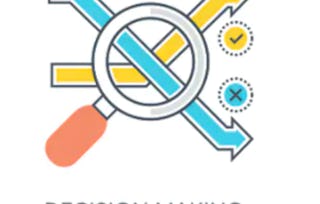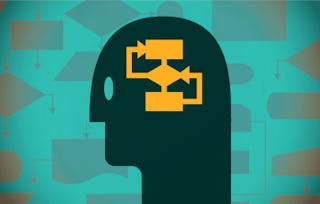This is part of our specialization on Making Decision in Time. For this second course we start with a landmark paper from Chernoff and build new insights into the ideas that his paper sparked. The ending point should bring new code and new algorithm insights into perspective, and use, by many computer and data scientists.

Data Science Decisions in Time:Sequential Hypothesis Testing
Saisissez l'occasion de faire des économies ! Bénéficiez de 40 % de réduction sur 3 mois de Coursera Plus et d'un accès complet à des milliers de cours.

Data Science Decisions in Time:Sequential Hypothesis Testing
Ce cours fait partie de Spécialisation "Data Science Decisions in Time"

Instructeur : Thomas Woolf
Inclus avec
Expérience recommandée
Compétences que vous acquerrez
- Catégorie : Medical Imaging
- Catégorie : Statistical Hypothesis Testing
- Catégorie : Applied Machine Learning
- Catégorie : Data Science
- Catégorie : Computer Vision
- Catégorie : Bioinformatics
- Catégorie : Bayesian Statistics
- Catégorie : Statistical Inference
- Catégorie : Data Structures
- Catégorie : Image Analysis
- Catégorie : Statistical Methods
- Catégorie : Algorithms
- Catégorie : Probability Distribution
- Catégorie : Machine Learning Methods
Détails à connaître

Ajouter à votre profil LinkedIn
11 devoirs
Découvrez comment les employés des entreprises prestigieuses maîtrisent des compétences recherchées

Élaborez votre expertise du sujet
- Apprenez de nouveaux concepts auprès d'experts du secteur
- Acquérez une compréhension de base d'un sujet ou d'un outil
- Développez des compétences professionnelles avec des projets pratiques
- Obtenez un certificat professionnel partageable

Il y a 6 modules dans ce cours
Obtenez un certificat professionnel
Ajoutez ce titre à votre profil LinkedIn, à votre curriculum vitae ou à votre CV. Partagez-le sur les médias sociaux et dans votre évaluation des performances.
Instructeur

Offert par
En savoir plus sur Software Development
 Statut : Essai gratuit
Statut : Essai gratuitJohns Hopkins University
 Statut : Essai gratuit
Statut : Essai gratuitJohns Hopkins University
 Statut : Essai gratuit
Statut : Essai gratuitJohns Hopkins University
 Statut : Essai gratuit
Statut : Essai gratuitRice University
Pour quelles raisons les étudiants sur Coursera nous choisissent-ils pour leur carrière ?

Felipe M.

Jennifer J.

Larry W.

Chaitanya A.

Ouvrez de nouvelles portes avec Coursera Plus
Accès illimité à 10,000+ cours de niveau international, projets pratiques et programmes de certification prêts à l'emploi - tous inclus dans votre abonnement.
Faites progresser votre carrière avec un diplôme en ligne
Obtenez un diplôme auprès d’universités de renommée mondiale - 100 % en ligne
Rejoignez plus de 3 400 entreprises mondiales qui ont choisi Coursera pour les affaires
Améliorez les compétences de vos employés pour exceller dans l’économie numérique
Foire Aux Questions
Plus de questions
Aide financière disponible,

